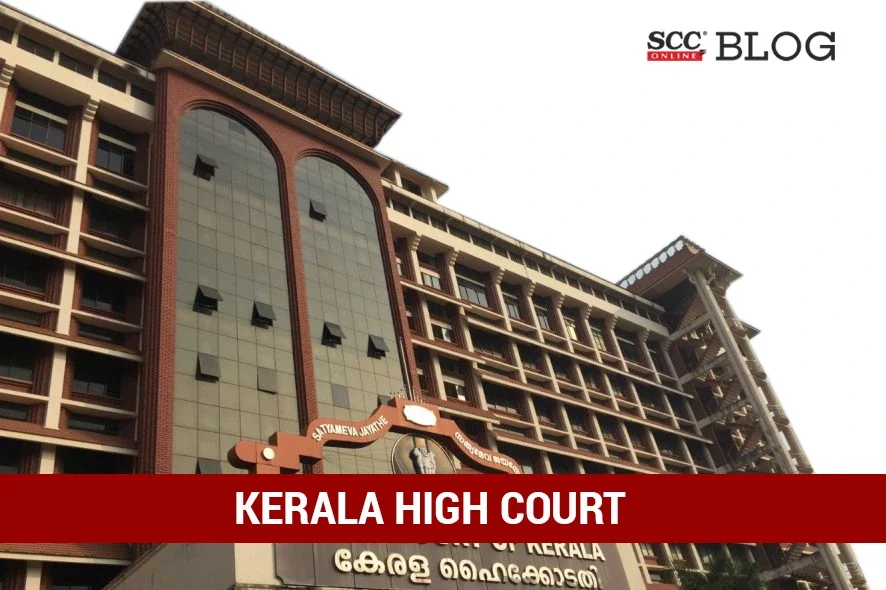Kerala High Court: In a petition seeking to quash final report in two criminal matters, or directions to the Investigating Officer (‘IO’) as an alternate to take back the final report and submission before the Special Court under POCSO Act for trying both the matters together, K. Babu, J. held that core elements of consideration including proximity of time, continuity of action, etc. were not favouring the joint trial and dismissed the petition.
Background
The instant matters involved offences under Sections 305, 450 and 376(2)(n) of Penal Code, 1860 (‘IPC’), Section 4 r/w Section 3(a), Section 6 r/w Section 5(l), Section 12 r/w Sections 11(iv), 11(v) and 11(vi) of Protection of Children from Sexual Offences Act, 2012 (‘POCSO Act’), Section 67-B of Information Technology Act, 2000 (‘IT Act’) and Sections 3(1)(w)(i) & 3(2)(v) of Scheduled Castes and Scheduled Tribes (Prevention of Atrocities) Act, 1989 (‘SC/ST Act’).
Facts reveal that on 9-6-2021 late at night, a girl aged 17 years was found hanging on the ceiling fan in her bedroom after which, crime was registered under Section 174 of Criminal Procedure Code (‘CrPC’). On the same day, information of petitioner having abetted the minor girl to commit suicide was received, which led the IO to alter the penal provisions as Section 305 IPC and Section 3(2)(v) of SC/ST(POA) Act. The postmortem revealed that the victim was subjected to aggravated penetrative sexual assault, allegedly on 18-12-2020 to 19-12-2020, and 13-02-2021 to 14-02-2021, after which, another crime was registered under Section 376(2) of IPC and Section 4 r/w Section 3(a) of POCSO Act while arraying the petitioner in both the cases. Investigation was completed and final report was submitted in Courts of appropriate jurisdiction in both the crimes.
The petitioner’s counsel claimed that both the crimes constitute a common transaction, and thus, the petitioner should have been charged and tried at one trial for those offences since trial by two different Courts would cause prejudice and go against the provisions of Section 220 of CrPC.
Court’s Analysis of CrPC Section 220
The Court perused Section 220 of CrPC which lays the provision to be followed in case of trial for more than one offence. The Court explained it as an enabling provision for joinder of charges of offences committed by the same person wherein different offences or acts are parts of a single transaction. It further said that “The Court may or may not try all the offences together in one trial and if it does not, it does not commit any illegality. The accused in a case has no vested right to seek joinder of charges and trial of more offences in one trial.”
The Court expressed that ‘same transaction’ is the essence being vital for deciding whether series of acts in question are connected for a common trial. Reliance was placed on Mohan Baitha v. State of Bihar, (2001) 4 SCC 350. The Court further explained that ” There cannot be a universal formula for the purpose of determining whether two or more acts constitute the same transaction. The commonality of purpose or design and continuity of action manifest that the same or different offences were committed in the course of the same transaction. The proximity of time, unity of place, unity or community of purpose or design and continuity of action make the series of acts alleged against the person to constitute the same transaction.”
The Court referred to Anju Chaudhary v. State of U.P., (2013) 6 SCC 384 wherein, the Supreme Court showed its disability in enunciating a formula of universal application for determining acts constituting the same transaction. In similar facts of P. v. State of Uttarakhand, 2022 SCC OnLine SC 752, the Supreme Court held the offences distinct in nature to be charged and tried separately. It was further held that “for several offences to be part of the same transaction, the test which has to be applied is whether they are so related to one another in point of purpose or of cause and effect, or as principal and subsidiary, so as to result in one continuous action.”
Consideration of facts by the Court
The Court observed that the acts of rape were allegedly committed on midnight of 18-12-2020 to 19-12-2020, and 13-02-2021 to 14-02-2021. While the suicide was committed between 8-6-2021 and 9-6-2021. The Court expressed that the said acts were neither proximate nor in continuity, one being an act of sexual exploitation of a minor girl after house trespass, and another being abetment to commit suicide by threatening to spread her nude photos.
The Court concluded that core elements of proximity of time, unity or proximity of place, unity and continuity of action, and commonality of purpose or design were not favouring the joint trial. The Court rejected the contention of alleged acts forming the same transaction and dismissed the instant petition.
[Jithin P. v. State of Kerala, 2023 SCC OnLine Ker 3906, Order dated 24-5-2023]
Order by: Justice K. Babu
Advocates who appeared in this case :
For Petitioner: Advocate P.P. Ramachandran, Jithin S. Sundaran;
For Respondents: Public Prosecutor N.R. Sangeetha Raj, Advocate M. Shajna, Advocate P.P. Ramachandran.









